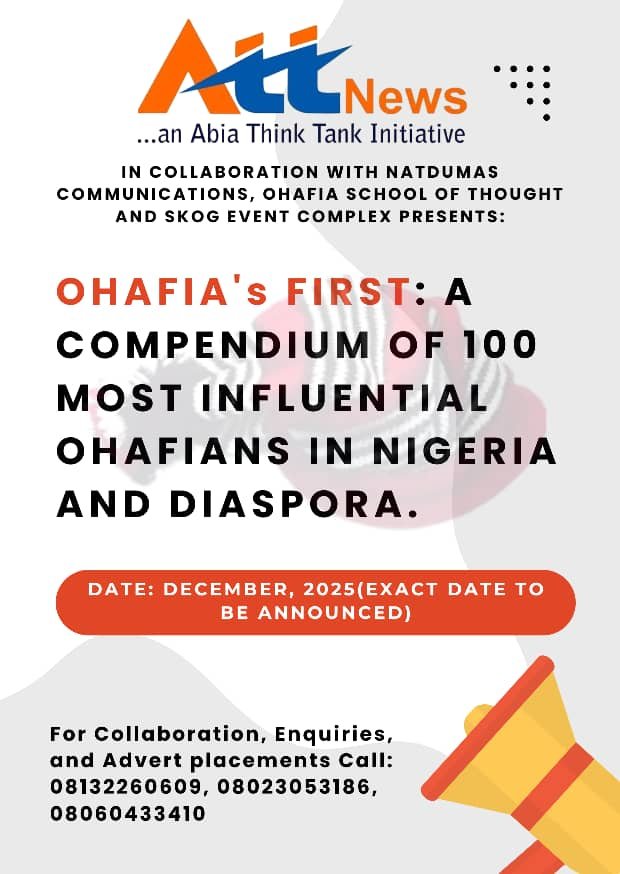In The Pursuit of Happyness for the Common Man
“You got a dream… you gotta protect it.”
— Chris Gardner’s lesson to his son in The Pursuit of Happyness
Governor Alex Otti’s radical transformation of Abia State mirrors Chris Gardner’s visceral battle against homelessness and institutional indifference. Like Gardner chasing a stockbroking dream amid eviction notices and bathroom shelters, Otti confronts 16 years of systemic decay while pursuing his “New Abia” vision. This narrative reveals how Otti’s governance embodies the film’s philosophical core—resilience as political ethic, the redefinition of happiness as collective dignity, and leadership as defiant stewardship against corrosive neglect.
🎬 Cinematic Despair, Governance Realities
In the film’s harrowing bathroom scene, Gardner crafts fleeting sanctuary within a BART station restroom—a barrier against crushing indifference. Otti confronts parallel desolation in Abia’s healthcare deserts, where crumbling Primary Health Centers (PHCs) symbolized decades of abandonment. His “Project Ekwueme”—retrofitting 200 PHCs like those at Owerinta, Amibo, and Ekeoba—transforms voids of neglect into spaces of refuge. Equipped with solar power, maternal care units, and digital diagnostics, these clinics embody Gardner’s makeshift sanctuary scaled into systemic policy.
Gardner’s eviction—triggered by an IRS seizure of his last $22—mirrors Otti’s battle against institutionalized graft. Accusations of Otti running a “one-man show” echo the extractive systems that preyed on Gardner. Yet Otti’s counterstroke—55 projects commissioned in weeks, including 14 roads across Aba commissioned in a single day (June 10, 2025)—parallels Gardner’s relentless internship pursuit: rebuilding trust through visible, measurable action. Like Gardner selling bone scanners between brokerage tasks, Otti’s tangible outcomes (Umuode Road, Bakassi Road, Enyimba-Ariaria Junction) are Abia’s rebuttal to despair.
🧱 Infrastructure as the Scaffolding of Happiness
“This part of my life… is called happiness.”
— Gardner upon securing his brokerage job


For Otti, happiness manifests as physical and economic access. The reconstruction of Clifford Road (0.836km) and Afikpo Road (0.480km) mirrors Gardner’s frantic sprints through San Francisco—each kilometer of tarmac eroding isolation, connecting markets like Ariaria to opportunity. As Otti declared at St. Joseph’s College: “Roads restore ancient landmarks.” Aba’s nocturnal resurgence—where “businesses thrive past midnight”—realizes Gardner’s “time machine” fantasy. The IBB Way reconstruction and plans to “light up Umuahia-Ohafia” literally reclaim time from darkness, extending commerce into once-impossible hours.
Gardner’s vow—“Christopher is staying with me”—finds policy expression in Otti’s cultural investments. His 75th birthday tribute to Chief Zebrudaya (pioneer of Nigeria’s “New Masquerade”) and the Entertainment Village/Stadium City project protect artistic legacy like Gardner shielded his son’s innocence. “We celebrate excellence,” Otti asserted, honoring living icons while reviving Aba’s Pound Road as Nollywood’s birthplace.
🧭 Philosophical Anchors: Locke, Jefferson, and the New Abia
The film’s title invokes Jefferson’s “pursuit of happiness”—adapted from John Locke’s view of happiness as “a disposition of mind aligned with long-term well-being.” Otti operationalizes this by rejecting graft-driven GDP fetishism. His acquisition of Abia North’s power grid from EEDC attacks energy poverty at its root. The buyback of Star Paper Mill from AMCON revives industrial dignity. His rejection of CCECC’s delays despite China’s partnership offers (“We don’t accept excuses”) reflects Locke’s insistence on accountability.
Gardner’s acceptance of unpaid internships for long-term gain mirrors Otti’s stance on economic reform. His alignment with Tinubu’s subsidy removal—“a courageous decision… we’ll endure short-term pain”—echoes Gardner’s reflection: “Maybe happiness is something we can only pursue.” Otti’s climate partnership with UK’s FCDO-PAGE, prioritizing flood-resistant infrastructure, converts vulnerability into collaborative resilience—Abia’s answer to Jefferson’s “pursuit.”
⚖️ The Shadow of “Wilful Blackmail”: Resilience as Political Ethic
Gardner faced “cheap blackmail” through unpaid internships; Otti confronts opposition framing his reforms as “propaganda.” Both exemplify Stoic response. Gardner’s perfect test score finds parallel in Otti’s 5,000 merit-based teacher recruitments. His Rubik’s Cube ingenuity mirrors the Education Reform and Innovation Team (ERIT)—180 experts designing AI-aligned curricula to defuse Nigeria’s “ticking bomb of under-skilled youth.”
When critics dismissed his progress, Otti commissioned roads anyway—declaring at Abiriba’s civic reception: “This crowd is 99.99% organic. Abiriba people don’t rent crowds.” The 237 roads rebuilt since 2023 stand as asphalt rebuttals to skepticism, much like Gardner’s broker license silenced doubters. Senator Orji Kalu—once a rival—embodied this shift, praising Otti after driving smoothly from Igbere to Umuahia (a journey cut from 3 hours to 45 minutes): “You have done well. Abians know what is good for them.”
🌅 Conclusion: Correcting the Spelling of Happiness
“Men always forget that happiness is a disposition of mind, not a condition of circumstances.”
— John Locke
The film’s misspelled “Happyness” mural—symbolizing elusive fulfillment—finds real-world correction in Otti’s legacy. Clinics where mothers once gave birth in darkness now glow with solar power. Farmers traverse the Umuahia-Ohafia axis under streetlights. Students access STEAM labs in retrofitted schools. Like Gardner lifting his son onto the stockbrokerage floor, Otti elevates Abians from spectators to protagonists.
In this New Abia, happiness is spelled access (to healthcare, power, roads), agency (through transparent governance), and asphalt (as pathways from neglect). As Locke envisioned, Otti’s governance aligns circumstance with collective dignity—proving that even in Nigeria’s toughest state, the pursuit itself can become the destination.
— Dr. Chukwuemeka Eke, Department of Economics, University of Abuja







